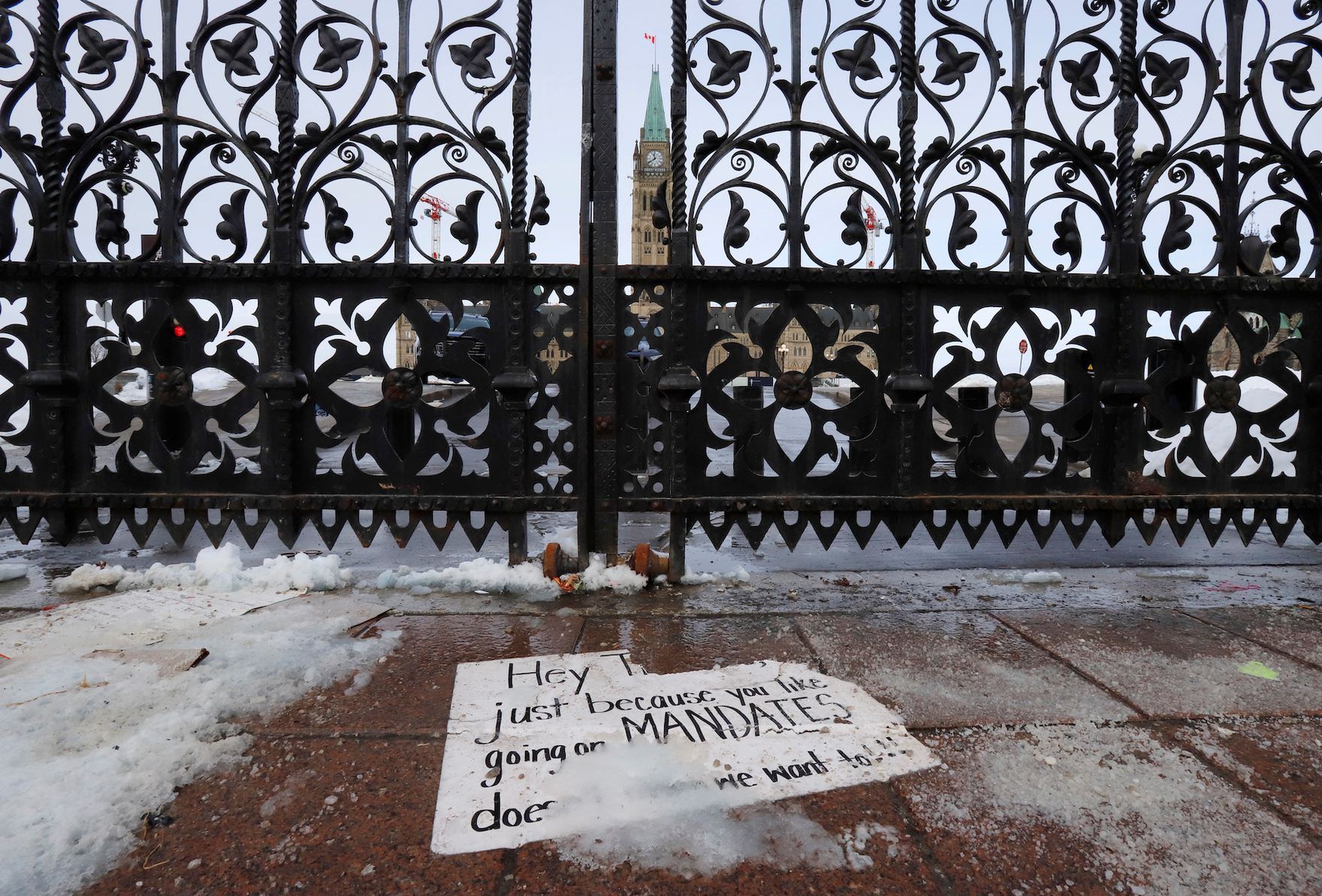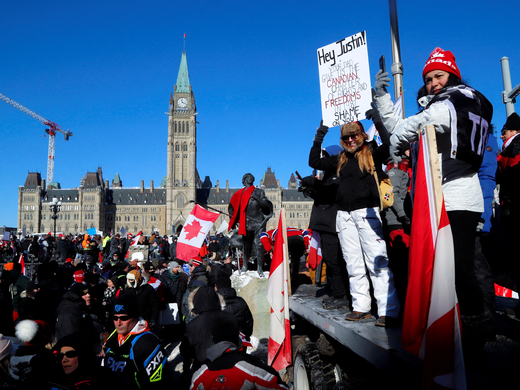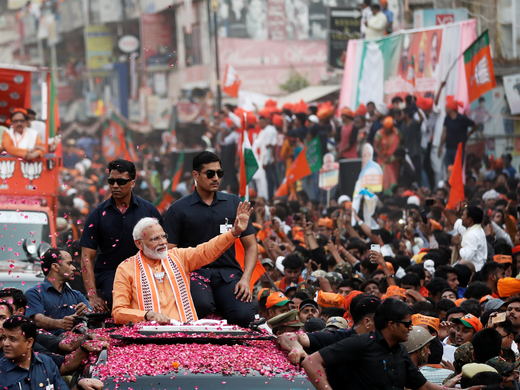When the last piece of debris from the occupation of Ottawa has been hauled to a landfill and the cacophony of blame-laying has abated, we’ll still face this intractable question: How is it that a society of mainly law-abiding, moderate people was all but paralyzed for a month by a small, extraordinarily determined group of protesters and occupiers, as devoted to their cause as the members of any doomsday cult?
Among the attempts at an answer, expect one theme to dominate: Garbage in, garbage out.
Societies coalesce around common interests and shared values — and, it turns out, shared reality. If your reality, underpinned by what you believe to be facts, diametrically contradicts my reality, underpinned by what I believe to be facts, we have a problem. Who arbitrates? How can I persuade you that my statistics about the efficacy and safety of COVID-19 vaccines, from Harvard Medical School, are correct, whereas yours, culled from Reddit, are incorrect?
The short answer is, I can’t. Nor, in our present information ecosystem, can I prevent you from persuading millions of other people that you have it right, whereas Harvard has it wrong. This applies to disagreements about vaccines, but also to discord about the fundamentals of democracy itself, including the law. The lack of mutually agreed truth is poison in the sinews of society.
It’s a poison for which there is a proven remedy, but one that is neither fast-acting nor easy. International standards are dull. Progress in governance does not often make headlines. But multilateralism — the creation of an effective, rules-based international order — rescued civilization following the Second World War. More recently it rescued the global economy in the aftermath of the Great Recession of 2009. With effort and goodwill, global cooperation can stem the tide of intellectual sewage that is undermining democracies worldwide.
Consider that information corrosion now appears to be outrunning the various attempts by legislators — including in Canada, the United Kingdom, Australia and the European Union — to reimpose a semblance of shared reality by introducing national standards for content on social media. The occupation of Ottawa, like the January 6, 2021, insurrection in Washington, DC, was fuelled by disinformation, amplified via US-based social media platforms and funded online. The synthesis of nationalist, anti-globalist, far-right disruption is now embedded worldwide — fuelled by disinformation, amplified via social media. Where does it end?
Moreover, we know that this will get worse, left unchecked. Deepfake digitized content now rivals video for verisimilitude. Meta, the company formerly known as Facebook, has staked its future on the creation of a “metaverse,” in which participants worldwide can interact, play and work by engaging with each other as digital avatars. Think of it: Rules to prevent defamation, harassment and bald-faced lying haven’t begun to catch up with the free-for-all on Twitter. Yet the world’s wealthiest corporations are racing headlong to deliver a future in which immersive internet makes the current set of problems seem simple by comparison.
Laissez-faire advocates will argue that the free market, driven by consumer demand and reined in by the US Congress and American regulators, will fix this problem. That is naive. Left to its own devices, the American political and regulatory system under former president Donald Trump would have dismantled the rules-based international order and crippled globalized, liberal trade.
The path forward, if there is one, is through multilateralism — international cooperation between like-minded democracies that, together, can provide a counterweight to the power of the United States and its mega-corporations. International cohesion doesn’t begin as cohesion; it begins with leadership, by individual leaders in individual countries, who gradually bring their counterparts onside.
The place for that dialogue to begin, as my colleagues at the Centre for International Governance Innovation have long argued, is with an international Digital Stability Board, modelled on the Financial Stability Board set up to mitigate the harms of the Great Recession of 2009.
Such a forum won’t deliver solutions as quickly as we need them. But it is the best idea on offer. It will be the start of a global effort to build the next, digital phase of the rules-based international order, without which any emerging set of national standards will remain one piece of a patchwork, subject to fraying.
Focusing politicians’ minds on the mid and long term is hard: they are perpetually stomping out the day’s fire. But this fire is on our doorstep. The occupation of Ottawa should be a catalyst for democratic leaders to put their smartest diplomats together in a room, or a Zoom chat, to begin talking and building the next, digital phase of international cooperation. They should do this now. There is no time to waste.
This article first appeared in the Ottawa Citizen.



